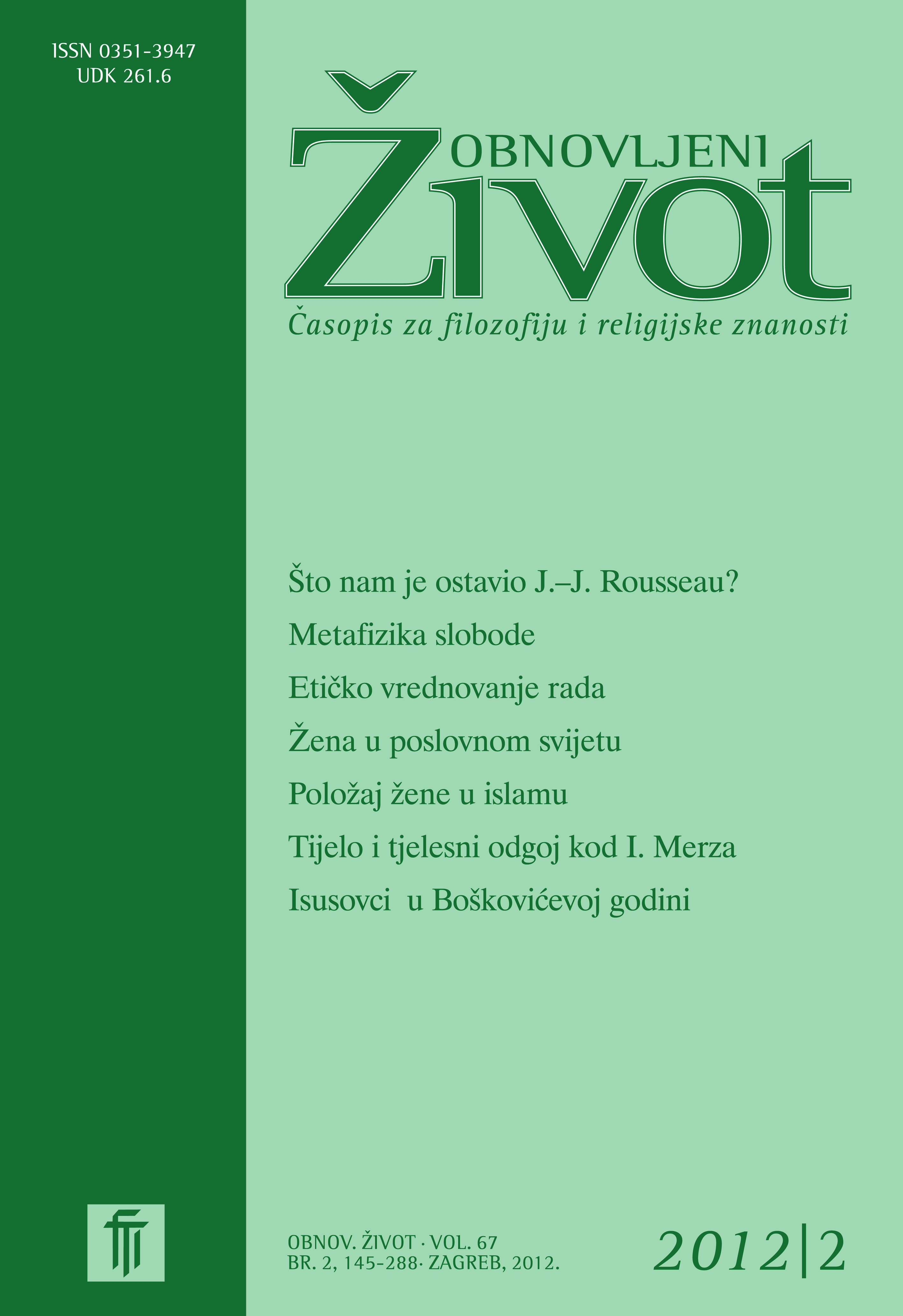An Ethical Evaluation of the Cost of Labour
Keywords:
cost of labour, feudalism, capitalism, distributive value, justice, theories of distributive justiceAbstract
The text offers a short overview of important social, cultural and political norms within which human labour is evaluated from several dominant viewpoints, all of which are crucial for the understanding and resolving of major problems concerning the workers’ situation. The features which identify man as a worker historically belong to capitalism which, in addition to fully manifesting the experience of the estrangement of labour, brought with it the liberation of labour; it has set the material foundation on which fairness and creation of wealth are made possible; it has made the moral equality of people an object of universal political desire. By taking a closer look at ethical issues associated with the manner in which fairness is perceived and implemented, it is possible to increase the clarity with which qualified and unqualified ethical reflections are differentiated, and to find a specific link between classical normative ethical principles and the principles of descriptive ethics. Since ethics is the science of conduct, promoting and standardizing quality models of economic fairness through ethical answers on the anthropological level of the culture concept is justifiable. At the same time, those models which silently but persistently exist around us and which are in opposition to moral judgement should be subject to criticism and modification.
Downloads
Published
Issue
Section
License
Jednom prihvaćeni članak obvezuje autora da ga ne smije objaviti drugdje bez dozvole uredništva, a i tada samo uz bilješku da je objavljen prvi put u Obnovljenom životu. Uredništvo će obavijestiti autora o prihvaćanju ili neprihvaćanju članka za objavljivanje.
Članci objavljeni u časopisu se, uz prikladno navođenje izvora, smiju besplatno koristiti u obrazovne i druge nekomercijalne svrhe.


